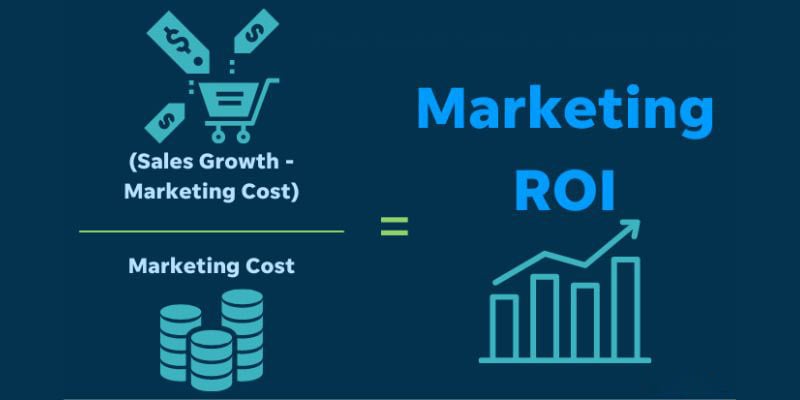Advertisement
Advertisement
How Venture Capitalists Make Investment Choices?
Oct 06, 2024 By Rick Novak
Venture capitalists are playing a vital role in the ever-changing world of investments over decades. They play a supportive role in taking high-growth startups to the next level.
They can uniquely identify promising startups and give them the capital to fuel their growth. They have a set of criteria for making certain decisions and offer insights that significantly impact the investment.
Let us discuss different factors about how venture capitalists make investment decisions.
What Is A Venture Capitalist?
A professional investor known as a venture capitalist, or VC, offers to fund start-up businesses with significant development potential. These people or businesses are looking for promising companies with the potential to change sectors, open new markets, and offer investors large returns. They are essential in fostering innovation and fostering the expansion of business endeavors.
VCs are more than simply wealthy financiers. Before investing, they actively look for possibilities and rigorously assess startups. They conduct thorough due diligence to evaluate several company factors, including the market potential, the founding team's skills, the novelty of the good or service, and the scalability of the business plan.
Key Factors Venture Capitalists Consider While Making Investment Choices
Solid Management
Venture capitalists first emphasize solid team management to execute the business plan more effectively. Hiring experienced management will attract more investors. A smart investor only values managers with successful, proven track records. They know an experienced manager will bring a wealth of knowledge to increase a venture's chances.

A venture capitalist knows everything about the business, which helps him to make strategic decisions according to the present conditions. They can achieve the most favorable returns on their investments and contribute to the overall success of the venture.
Size Of The Market
It's critical to persuade venture capital (VC) investors that your company is pursuing a sizable and achievable market opportunity. VCs are particularly interested in areas with a revenue potential of $1 billion or more. This is because venture capitalists seek high returns on their investments.
VCs seek to ensure that the companies in their portfolio have a realistic chance of attaining hundreds of millions of dollars in sales to achieve their expectations. The larger the market size, the greater the likelihood of a trade sale, making the business even more appealing to VCs looking for ways to exit their investment.
The company should, ideally, have the capacity for rapid expansion, enabling it to establish itself as a key player in the industry. VCs are particularly drawn to this kind of expansion since it increases their chances of having good outcomes and maximizes their return on investment.
Great Product With Comparative Edge
Investors are interested in investing in great goods and services with long-term competitive advantages. They look for solutions to significant issues other businesses haven't sufficiently addressed. They want goods and services that consumers can only live with because they far outperform alternatives already available or because they are significantly more inexpensive.
In the market, VCs especially look for a competitive advantage. Before competitors enter the market and potentially reduce profitability, they want their portfolio companies to be able to create sales and profits.
Their portfolio companies are more likely to dominate the market and take home a larger share of their customer base when fewer direct competitors work in the same industry. The investment opportunity is strengthened, and the likelihood of long-term success is increased by this competitive edge.
Assessment Of Risks
The main duty of venture capitalists (VCs) is to take risks with their investments. As a result, it seems sensible that they would want to have a thorough understanding of the business before investing in an early-stage startup.
VCs will demand complete transparency regarding the company's accomplishments and the milestones that still need to be reached during their interactions with the business founders or when examining the business plan.
Depending on variables, including the type of fund and the people engaged in the investment decision-making process, VCs may use various techniques to assess, measure, and reduce risk. However, finding ways to reduce risk while generating high returns on their investments is what VCs are ultimately after. They try to balance the likelihood of benefits with the degree of risk involved in a given opportunity.
Market Opportunity and Potential
The market potential and possibility of a startup are among the most important factors venture capitalists consider. They evaluate the target market's size and development potential, looking for organizations that can disrupt established sectors or create new markets.
Venture Capitalists examine industry trends, the competitive landscape, and consumer demand to assess whether a business can scale and generate a good return on investment.
Potential for Growth and Scalability
Investors are most interested in firms with significant growth potential and scalability. VCs review a company's business plan and if it can achieve significant growth in a reasonable amount of time.

Scalability is critical because it enables a business to grow its revenue without experiencing commensurate expense increases. This factor is especially essential for venture capitalists seeking ventures that can provide significant returns on their funds.
Exit Potential
Venture capitalists make investments intending to make a profit. As a result, they thoroughly evaluate a startup's possible exit prospects. VCs analyze aspects such as mergers and acquisitions (M&A) market dynamics, the potential for initial public offerings (IPOs), and the general exit environment.
They assess the startup's potential appeal to larger companies or investors who may purchase or invest in it in the future.
Conclusion
Venture capital investment is a complex process that requires careful assessment of relevant data and analysis to make an informed decision. While there are no hard and fast criteria for selecting the greatest venture capital investments, understanding how venture capitalists think might help you comprehend their judgments.
Understanding the many criteria, VCs consider can help entrepreneurs position themselves to attract potential investors with strong financial offers or creative business strategies.
On this page
What Is A Venture Capitalist? Key Factors Venture Capitalists Consider While Making Investment Choices Solid Management Size Of The Market Great Product With Comparative Edge Assessment Of Risks Market Opportunity and Potential Potential for Growth and Scalability Exit Potential Conclusion
Understanding the Art of Revenue Calculation in Business

Best Buy's Expanding Portfolio: Top 3 Subsidiary Companies

Review of Allstate Home Insurance

How Traders Use CCI (Commodity Channel Index) to Trade Stock Trends

The Impact of CHIP on Children's Access to Healthcare Services

Frac Sand Scarcity: Meeting the Growing Demand

How to Calculate the Return on Investment (ROI) of a Marketing Campaign

The Future Value and Present Value of an Annuity



